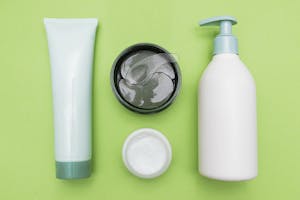
Vaginal atrophy can cause considerable pain and discomfort for women. As a menopause specialist providing care for women throughout the Boise and Treasure Valley areas, Jill Gustafson, CNM is skilled in state-of-the-art techniques to help women overcome vaginal atrophy so they can lead more comfortable lives.
Vaginal Atrophy Q & A
What is vaginal atrophy?
Vaginal atrophy, or urogenital atrophy, is caused by dramatic changes in the "architecture" of a woman's vulva and vagina. These changes impact all of the structures of a woman's genitals - the labia majora, labia minora, urethra, clitoris, vestibule, glands, pH levels inside the vagina, walls of the vagina, and the opening to the vagina. As a natural part of reproductive aging, males lose much of their testosterone in midlife, and women lose much of their estrogen. When a woman's estrogen levels remain consistently low for a prolonged period of time, as in the years following menopause, the tissues of her vulva and vagina will eventually decrease in size and thickness, resulting in atrophy. When the vaginal walls thin out, and the pH changes, the inside of the vagina becomes dry, and easily inflamed. Women with vaginal atrophy tend to experience significant discomfort during activities that they used to have no discomfort with, such as vaginal intercourse, or wearing tight pants. They are also more likely to develop urinary tract infections, fissures, decreased orgasmic sensation, and vaginal infections as a result of these changes to their vulvar architecture. Vaginal atrophy is one part of the genitourinary syndrome of menopause.
What symptoms does vaginal atrophy cause?
When atrophy is very mild, it may cause very few or even no noticeable symptoms. As the condition progresses, symptoms can include:
- burning or itching sensations in the vagina
- vaginal dryness
- vaginal discharge
- increased need to urinate or burning during urination
- decreased natural lubrication during intercourse
- painful intercourse
- spotting or light bleeding following intercourse
- tightening of the vaginal canal
- discomfort after intercourse
Although vaginal atrophy is most common during menopause, it can also occur when breastfeeding or in women who have lower levels of estrogen.
What treatments are available for vaginal atrophy?

The vulvovaginal changes that occur in menopause are permanent, but not all women have pain or discomfort as a result. For those women who do have pain or discomfort, it is a relief to know that treatments are available that reverse these changes. Topical estrogen cream, applied on a consistent basis to the vulva, can reverse the changes to your vaginal architecture and restore thickness, moisture, and resiliency to the entire genital tract. Since the estrogen cream is applied topically, rather than taken internally, there is very little systemic absorption of the estrogen and there are far fewer contraindications than most people realize.
Other treatments for vaginal atrophy include:
- special moisturizers applied to the vagina every few days to help replenish natural moisture and protect the delicate lining
- lubricants designed for use during sexual intercourse to decrease friction and relieve discomfort
- oral medications that elevate systemic levels of estrogen
A word of caution: not every vaginal moisturizer or vaginal lubricant on the market is appropriate for women with vaginal atrophy. Many products that are marketed to women are incorrectly formulated for post-menopausal women, and even if they are targeted to this age group, we find that there are many products on the market that cause burning and irritation when used. It is important to look for products that are isosmotic to vaginal tissues (this means they will not pull or push water into your tissues, which can cause damage).
For specific recommendations, please visit our links page for vaginal products that we have vetted for safety and efficacy. We caution all our patients to avoid vaginal products that are not specifically recommended by a menopause specialist, to avoid potential inflammatory reactions.

